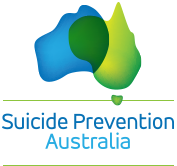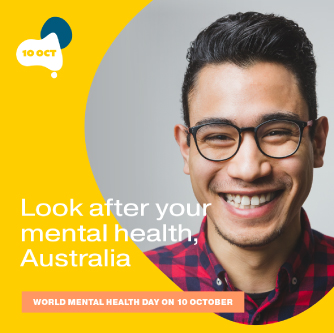CEO Update: Hats off to the mental health care frontline
Hats off to the mental health care frontline

In a local community survey I reviewed this week, the majority of respondents surveyed were more worried now about their mental health (49% rated it as fair to poor) than their physical health (32% rated it as fair to poor). It showed that while our health systems are getting on top of the pandemic’s primary concern – physical health - the second and third layers of this pandemic are creating increased pressure and will continue to do so for our mental health care frontline and secondary support systems.
Our mental health ecosystem is under constant strain and where data is reported, alongside commentary on this most challenging deterioration in the mental health of our communities, the encouragement to seek help - and advice on how to do so – needs to be met by those on the frontline.
Of course there are services available, as are family and friends for many, even if they are only accessible by phone or the internet and we all can, and should provide personal support, connection and reassurance to those in our networks.
Especially those identified as vulnerable, which was another piece of interesting data from the survey that highlighted the community’s increased concern and worry for those less enabled and empowered than others.
This regional survey is not unique, and we know the experience of mental ill health, stress, anxiety, worries, sadness and concern is building, and is shared across the country.
Which is why Mental Health Australia wants to recognise the challenge everyone is facing and the courage people need to keep going – many with very steep pathways ahead, and some with seriously depleted personal strength and physical resources to do so.
Never more so than now, we want to acknowledge the healthcare professionals who are all effectively on the ‘front line’ in any pandemic.
We know the constant tide and emerging waves of the mental health impact are being felt in the emergency departments, clinical settings, psychosocial support context, in primary mental health and primary care. This means peer workers, mental health professionals and psychosocial support workers in particular are all experiencing increased levels of stress and exhaustion themselves responding to those with whom they work.
Work that will continue for some time to come, and work that requires people to employ their own self-care methods to switch off and look after their own mental health, rather than being switched on 24/7.
And this is not just in Victoria, where the second lockdown has revealed increasing presentations for mental health crises to emergency departments, increasing incidents of family violence and an increased reliance on telephone and telehealth support services.
This is across Australia, where pre-existing service fragmentation and under resourcing has been further exposed as this major stressor in our community increases.
So this week, and always, we take our hats off to those whose work right now is to walk alongside those with mental health challenges. We take our hats off knowing as we do that the increasing demand, on top of an already fragmented system, means that each day there is a risk of additional stress as they seek to support those with whom they work.
We take our hats off to all those who are providing mental health care, and physical health care, in every community throughout Australia.
Have a good weekend.

Leanne Beagley
CEO
World Mental Health Day Healthcare Professionals Survey
Are you a healthcare professional living and working in Australia?
We would love to know more about how the pandemic has affected you personally, and what strategies you have used to maintain your mental health and wellbeing over the last six months. Your behaviours, tips and advice may provide valuable insight to the rest of the country.
Click here to take the survey and please send the link to any healthcare workers in your networks.
National survey on the impact of COVID on the mental health of people living in Residential Aged Care Facilities
Mental Health Australia is part of a national consortium led by Swinburne University to develop and implement a survey on the impact of COVID on the mental health of people living in Residential Aged Care Facilities.
The purpose of this study is to understand how COVID-19 has impacted the mental health of residents and staff and what mental health support they would like to be provided. Findings from this study will assist policy makers in Australia understand how COVID-19 has impacted mental health and what support should be provided. The survey is now live and we have begun recruiting aged care facility managers, clinical care coordinators and lifestyle team leaders to participate in the survey. Participation in the study will take approximately 10 minutes.
We would appreciate if you could send a link to the survey to anyone you know who is working in or have networks with Residential Aged Care Facilities. The link is www.swin.edu.au/agedcaresurvey.
|
|
|
|
|
The Framework for Mental Health in Multicultural Australia (the Framework) is a free, nationally available online resource which allows organisations and individual practitioners to evaluate and enhance their cultural responsiveness. It has been mapped against national standards to help you meet your existing requirements, with access to a wide range of support and resources. We are pleased to invite you to the final webinar of a four-part series in October 2020. The webinar will provide an in-depth look into Service Module 4 of the Framework: Building a Culutrally Responsive Workforce. This module looks at the policies and practices needed to help build a strong and culturally responsive mental health workforce across Australia. Details:
|
|
|
|
|
|
|
|
|
|








